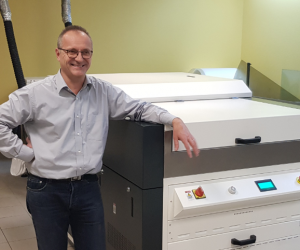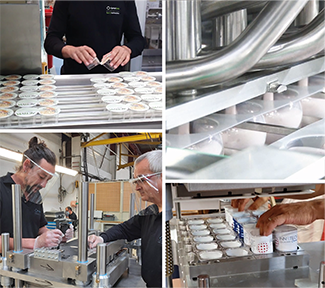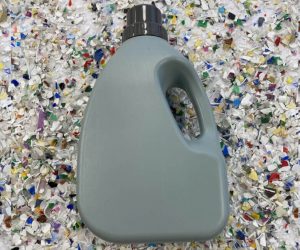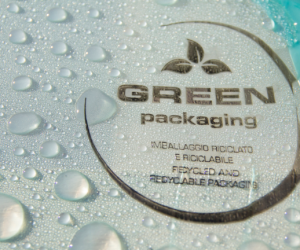

Synerlink – Sustainability is a Vital Link
Jean-Albert Larmaraud, Product Line Director at Synerlink informs SPN About the Company’s latest Developments.
How ‘sustainability-aware’ would you say your company is and what recent measures have you taken to improve your overall contribution to the circular economy? We are keenly aware of sustainability and it is a key driver behind our innovation projects. We consider all packaging materials, designs and formats when working on a project. We aim to build equipment that will enable our customers to reduce their carbon footprint, and in turn, contribute to a more sustainable economy.
In relation to sustainability, what would you say have been your most important milestones? One of our greatest achievements in 2020 has been mastering PET and PP cup pre-cutting on our form-fill-seal machines as we did with PS plastic. Our “Snapcut” innovation has already been sold to several customers. We are installing this process on new machines and machine upgrades.
In your opinion what have been the most significant developments in terms of recycling and bio-degradable packaging? The increase of recycling streams for water and soda bottles in PET is one of the most significant developments in terms of recycling. In Germany 97% of PET bottles are recycled, in France 65%. We are convinced this trend will continue with accelerating speed. The development of yogurt cups in rPET is also a big step in terms of recyclability.
What do you consider to be the most promising market opportunities for your company at this time? Mastering new plastics and alternative materials. Our technology keeps progressing everyday: our machines can thermoform, cut and pre-cut increasingly thin plastics without sacrificing the speed rate and brand image. Separately, the dedicated sorting centers will have a better understanding of how to purify each component at 99.99% (different plastics, colors, etc.). Plastic flakes from trays and cups will be recycled directly by sheet-extrusion or through a depolymerization and reprocess. r-PET and r-PS will be acceptable for food contact.
What are the key drivers for change in your industry sector and how much is the on-going pressure for greater sustainability and recycling affecting your productivity? Sustainability requirements continue to increase at every step of the value chain. Consumers are increasingly aware of the environmental footprint of packaging and across the world there is regulatory pressures that cascades down to the FMCG companies and packaging suppliers, like us. The constant evolution of materials (PET, PP) and cup components (labels, lids, sleeving) is a perpetual challenge. Our R&D programs allow us to stay on course.
As we are keen to understand more about the latest trends shaping the packaging industry in your sector, what do you consider to be the most significant recent developments? COVID-19 has certainly increased awareness of food safety, health, and hygiene. Sustainability has been redefined combined with hygiene in this new landscape. As mentioned earlier, we believe the increase of recycling streams for PET bottles has been significant. And with more demand for yogurt cups in PET, we expect this to have a similar positive effect on the circular economy.
Can you describe your product portfolio and its sustainability credentials? Our FFS (form-fill-seal) machines can produce cups in various plastics adapted to marketers and local recycling streams. Our fill-seal cup machines are suitable for glass, paper, potery or bio-source plastics. Our fill-seal bottle machines are adapted to all kind of plastics. Finally, our Combiblow bottle filler uses PET injected pre-forms, which take up less inventory room than preformed bottles and are easier to transport and reduce carbon footprint.
Are you planning the launch of any new products in the foreseeable future that you can tell us about? Our “Snapcut” technology was launched in late 2020 to answer a specific need to accommodate and cut form-fill-seal PET in a similar way that PS is handled. We will soon tailor our Snapcut technology to our DairyPack and Dinieper FFS range to support all our customers worldwide.
How has the Covid 19 pandemic affected your production and manufacturing capabilities? With the Covid19, we may be facing fewer “new” equipment orders, however our customers still rely on us to upgrade and incrementally improve their current equipment to meet customer demands. The current environment has challenged us to reinvent our business approach with virtual sales meetings, virtual FAT’s and remote services. Very recently, we conducted an Arcil FFS Factory Acceptance Test (FAT) with a successful 8-hour remote video for one of our customers based 4,000 miles from our facility. It went very well.
For more information go to www.synerlink.com





